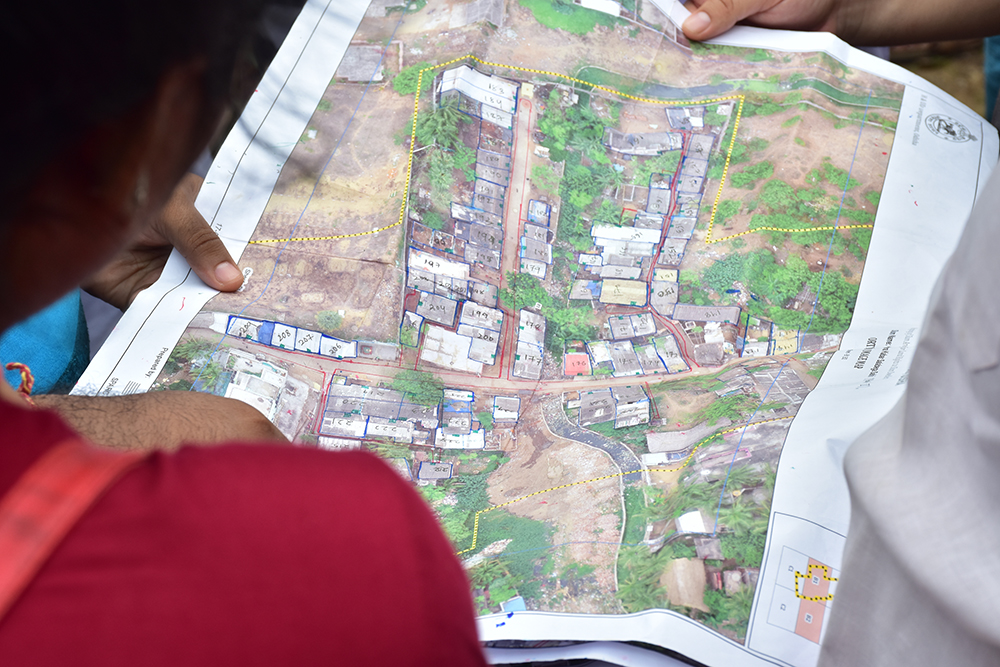Like many homeowners in the US, I have a pile of mortgage papers and the deed to our house cluttering my cabinets, and I don’t give them much thought. Likewise, renters have a lease document—usually kept in a folder somewhere—that formalizes their right to use and enjoy that dwelling.
Having a place to call home and a legal address serves as a foundation for a lot of our economic and social activity--getting a job, enrolling in school, opening a bank account, getting medical care, and almost every area of daily life. Our homes and properties are linked to our ability to prosper, and we often take that for granted.
A recent trip to India, however, reminded me how precious those papers are. In a country with one of the fastest-growing economies and a tech-savvy service industry, millions of people live without a property title or deed. Despite recent government efforts to digitize and update millions of land records, large swaths of property and people are left out of the land system, including urban slum dwellers, smallholder farmers, herders, indigenous peoples, and forest dwellers.
Only one quarter of the estimated 6 billion parcels of land around the world are formally registered with the security of title. Within many of the unregistered parcels, more than 1 billion people live in informal urban settlements or “slums.” Without legal titles or deeds, people cannot show proof of address, obtain credit, enroll their kids in school, use the natural resources, or tap into government or private sector services. In other words, all of the baseline needs for economic and social well-being and mobility.
And worse, people can lose their land, get evicted, have their homes destroyed, or have the natural resources that sustain them taken by others.
The government of one state on India’s eastern coast, Odisha, believes that this is not tenable and is working to grant land rights to people living in slums. The Odisha Liveable Habitat Mission has collaborated with the Indian foundation Tata Trust, local, national, and international partners—and with residents themselves—to map, document, and issue land rights. More than 350,000 people have received a land right certificate through this effort, which plans to reach up to 1 million.
Piki Satyabathi, a widow, is one such person. She has lived for 25 years on the outskirts of Puri, a small city known for tourism, historic temples, and beautiful beaches. Her husband died in a fishing boat accident eight years ago, and she has had to raise her son and make ends meet working in the fishing sector—without having ownership rights to the home they live in, or the land underneath.
Securing land rights in these Odisha settlements is only the first step for this project. The government and its partners are upgrading over 2,000 slums on state land through a process that involved the entire community. Women, men, and youth were involved in articulating a vision for their community’s aspirations and needs, like moving some houses to a safer location, expanding roads, getting piped water, and putting in street lamps and community spaces to make it safer and more liveable.
Cadasta staff working with community data collectors in the city of Puri in Odisha State, India, in August 2018. Credit: Cadasta Foundation
Piki was fortunate enough to live in this province, where legislation enacted in 2017 allows the government to collect geospatial and demographic data and use it to generate a land rights certificate, an address, and a small grant to construct a “pucca” house—a permanent structure, made of bricks instead of wood and reeds.
Piki proudly displays the certificate to her permanent land right and house for all to see, understanding its direct connection to her prosperity—unlike the dusty and forgotten deed to my house. She and her son no longer fear eviction. They will now have running water, a safer structure, and an upgraded community. Her title is the foundation for her and her son’s prosperity today and into the future.
The Odisha effort demonstrates that economic development, whether in cities or rural areas, needs to start with the people who live there. And it also starts with getting data—who lives where, which spaces are public and private, where the water and sanitation points are needed, and who has claims to the land. Today, even the poorest residents of Odisha are benefiting from new technologies using smart phones and tablets that map locations and capture household information and neighborhood features.
Countries and cities around the world feel the growing pressures of migration, climate change, and urbanization, with more than one billion people like Piki landing in informal settlements that lack basic services. Upgrading these areas makes little sense if land and property claims are not resolved first. Odisha state got it right when it invested first in securing the land rights.
Anywhere in India—or anywhere around the world—that provides a pathway to recognize land and property rights widens the road to economic empowerment. And using technology so that people can access, control, and share the necessary data is key. Recognized and respected land rights--particularly for women and vulnerable populations left out of formal systems--builds a solid foundation for prosperity. Without them, the ground is very shaky indeed.
This blog was originally posted on the Chicago Council website.



